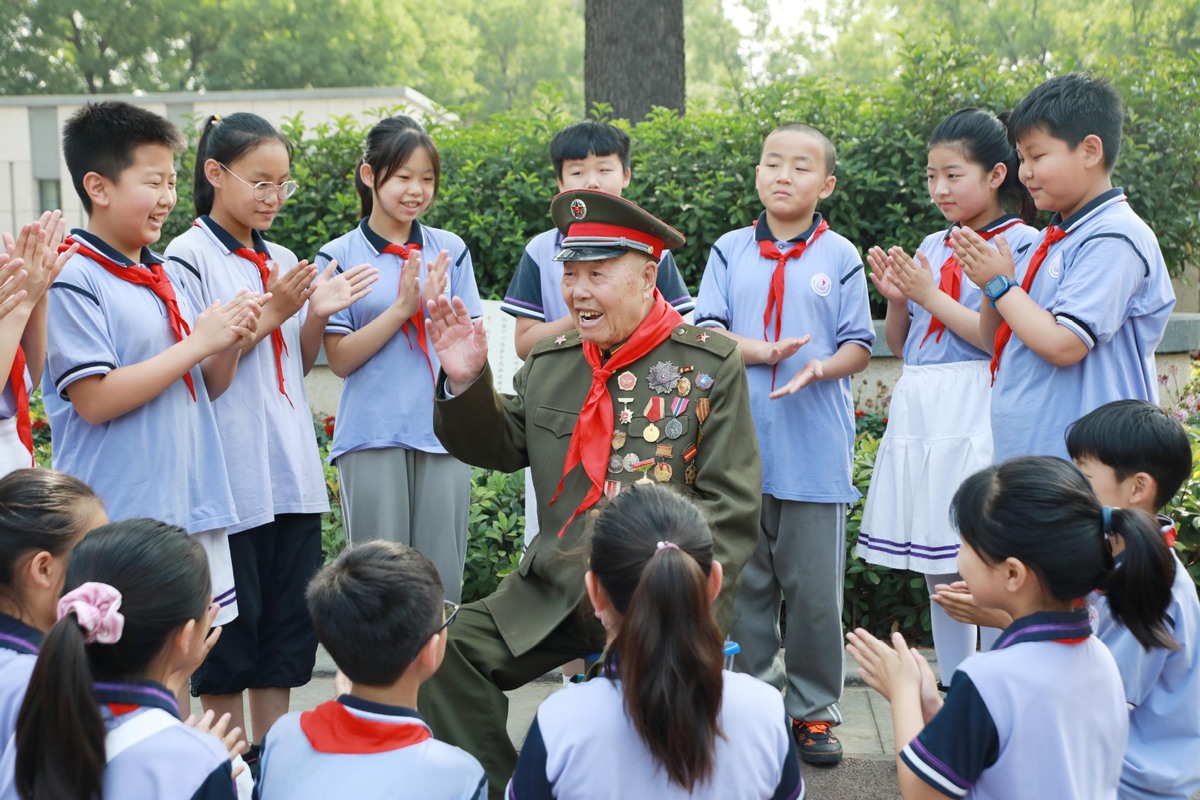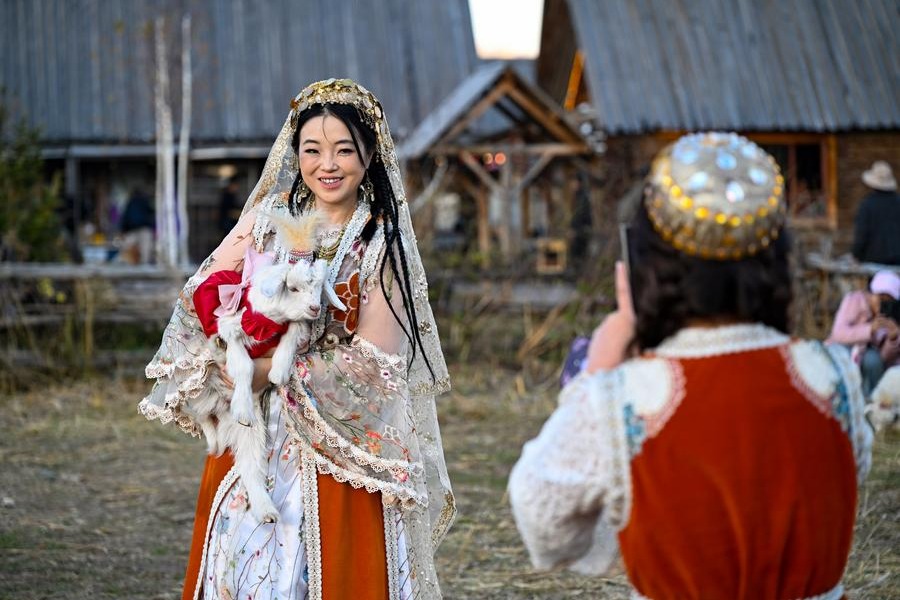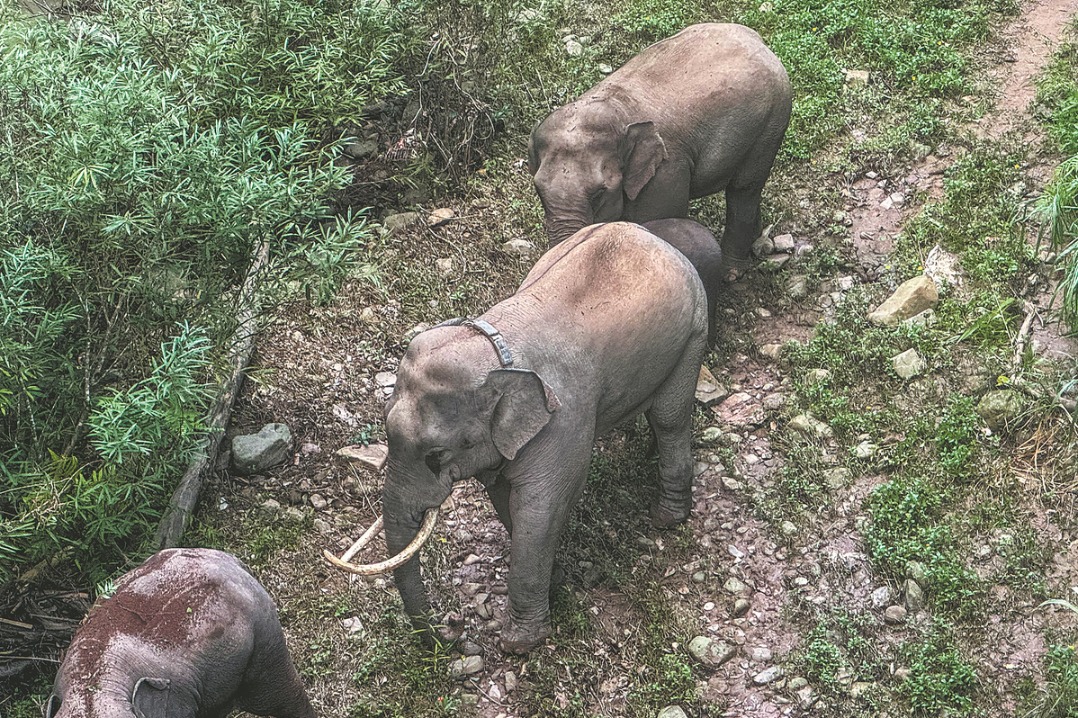Soldier's heroism, national commitment recognized


Veteran of two wars thinks often of comrades who gave their lives for the country
Wang Zhanshan, a decorated retired officer of the People's Liberation Army, said that he very much misses the comrades he fought alongside in fierce battles and who sacrificed their lives for victory.
"I want to tell my dear fallen comrades that they can rest in peace because our motherland has become strong and respectable, and our children, and our children's children, are living happy lives," the 91-year-old said.
"I have survived cruel combat, but so many of my comrades died fighting. I feel very sad when I think of them."
Wang himself is a renowned war hero who served in the military for more than three decades.
Born into a farming family in Hebei province in December 1929, he joined the PLA at age 17, and began to take part in combat actions against Kuomintang forces across China.
By the time the People's Republic of China was founded in October 1949, Wang was already a veteran soldier and had survived many violent battles.
However, his biggest and toughest challenge emerged four years later during the War to Resist US Aggression and Aid Korea (1950-53), when he was a member of the Chinese People's Volunteer Army.
In the summer of 1953, Wang, a platoon commander at the time, was ordered to lead his soldiers into the Jincheng Campaign-which is known as the Battle of Kumsong outside of China-and was tasked with defending a high-altitude position.
The young officer and his soldiers were outnumbered and outgunned, but they did not retreat. Led by Wang, the platoon withstood relentless bombardment by enemy aircraft and artillery that lasted three consecutive days and nights, thwarted as many as 38 offensives and killed more than 400 enemy soldiers.
Wang suffered injuries to his eyes and was buried under soil twice after bombs dropped by the B-29 bombers exploded nearby.
He was even placed with the dead at a field hospital because the doctor checking him was in a hurry and found no vital signs.
Fortunately, one of his comrades insisted that Wang's heart was still beating and requested immediate assistance, which saved his life.
For his valor and heroism, Wang was awarded medals and honorary titles by both the Chinese military and the Democratic People's Republic of Korea.
After returning from the Korean Peninsula, Wang continued to serve in the military and moved up through the ranks.
He served as infantry regiment commander and deputy chief of staff at an infantry division and was later appointed deputy commander of the Anyang Regional Command in Henan province before retiring in the mid-1980s.
Returning to civilian life did not lessen the decorated soldier's sense of duty. He gave public lectures to students and young military members, telling them stories about himself and his comrades. He also helped local schools organize lessons about military knowledge and skills.
In recognition of his service and contribution to the nation, the Party and the PLA, Wang was conferred a July 1 Medal-the highest Party honor-by President Xi Jinping, general secretary of the CPC Central Committee, at a grand ceremony at the Great Hall of the People in Beijing last week. A total of 29 Party members were honored the same day.
- A glimpse into China's 75 years of innovation through IP endeavors
- Chinese revel in culture, tourism feast during holiday
- World leaders extend congratulations on PRC's 75th founding anniversary
- Ethnic vloggers popularize highs and lows of rural life
- 2 killed as typhoon lands in Taiwan
- China-built supply chains to benefit all





































